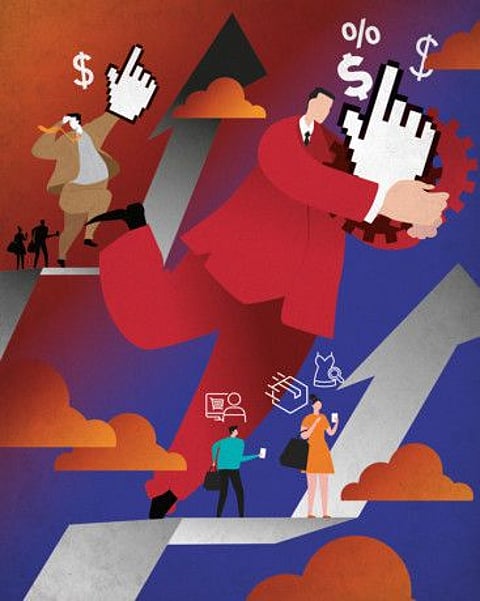Build big with existing customers to win
That’s the route businesses need to go after to make those numbers grow further

The pandemic not only forced everyone to work remotely, but also accelerated the need for companies to fast-track the digitization of their business. Once steps were taken to ensure operational continuity, brands realized the digital transformation needed to extend to other areas.
With new revenue streams proving harder to come by and consumers spending more time online, customer retention and experience will be the single most important priority for every brand.
Here are the Top 5 reasons why I believe that companies will need to invest more than ever in their online relationships.
Customer journey needs to be extended
If you use an app to book a ride-sharing service or order food, your engagement with that specific brand stops once you finish using the service. The brand then ends up engaging with you only during that single business transaction, which is only a fraction of the time it should actually be engaging. There will be increasing competition for brands to extend customer touchpoints by offering new content and entertainment experiences to command a greater share of attention.
Brands who can deliver consistent tech-driven customer experiences and customized on-demand content will come out ahead.
Existing customers are the key to new revenues
The low hanging fruit can sometimes deliver the biggest reward - so companies should double down their efforts to engage with existing customers. The stats speak for themselves.
Increasing customer retention by 5 per cent can increase profits from 25-95 per cent. The success rate of selling to an existing customer is 60-70 per cent, while the success rate of selling to a new customer is only between 5-20 per cent.
It also costs five times less to retain customers than acquire new ones and loyal customers spend up to 67 per cent more than new customers. Repeat customers also have a higher lifetime value, meaning that over the course of a customer’s projected buying time with your brand, you can predict a high return on investment. Remember that businesses lose $1.6 trillion per year when customers move away from them.
Digital is the primary medium of engagement
Around 3.5 billion people, which represents 45 per cent of the world’s population, are social media users, and this number is only going to increase with an estimated 1 million new users joining every day. The majority of what we do and how we interact with brands are taking place in the digital space. Companies that want to be successful in the post-pandemic era must shift from digital evolution towards digital “revolution”.
Businesses that rely heavily on face-to-face interactions will need to reinvent themselves as more and more customers seek digital channels for goods and services. We expect digital channels to become the first-level access point for brands to engage with customers, while face-to-face interactions will take a back seat.
A report from brand protection firm Red Points reveals 73 per cent of consumers will increase online shopping if the COVID-19 outbreak continues, and 58 per cent of consumers have already bought more goods online than usual.
Increasing use of digital devices to stay connected
Companies will need to have a better understanding of their customers’ digital needs to adapt to a rapidly changing online behavior. According to a Hootsuite and We Are Social’s 2019 digital report, consumers are spending on average almost seven hours online daily, half of which are on mobile devices. Consumers today interact with brands 2x more on mobile than any other channel.
Brands will need to seriously consider improving their mobile customer strategy and experience.
Emergence of 5G
5G is now live in 24 markets. With superior data speeds and network reliability, 5G will enable businesses to connect and engage with customers in new and exciting ways. It will not only improve smartphones, but also accommodate the explosive growth of mobile video as it becomes the leading source of media and entertainment for consumers.
It will also accelerate the era of hyper-presonalisation and could dramatically increase the opportunity for customer engagement and revolutionise the relationship between consumers and brands. Companies will be able to utilize consumer preferences and behavior information to offer real-time personalized experiences that go above and beyond what we are used to today.
- Paolo Rizzardini is Chief Commercial Officer at Mondia.



